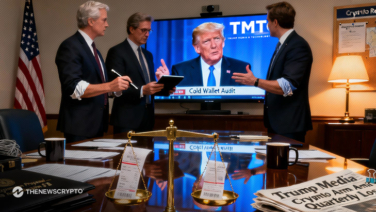- House Committee voting on digital assets’ transition from securities to commodities.
- Separate legislation seeks a comprehensive regulatory framework for stablecoins.
- The U.S. is aiming for balanced crypto innovation and consumer protection.
This July, the U.S. House Financial Services Committee, under its Chair, Patrick McHenry, is slated to vote on two pivotal pieces of legislation. These laws could decisively influence the future of digital assets, particularly cryptocurrencies and stablecoins.
U.S. House committee to vote on crypto, stablecoin legislation in July https://t.co/WtpcTxX2GY
— The Block (@TheBlock__) June 21, 2023
In particular, the committee seeks to carve out a well-defined route for digital assets to transition from being classified as securities to commodities. Notably, commodities tend to carry lighter reporting and regulatory burdens. This shift would significantly ease some constraints on the thriving crypto market.
According to reports, McHenry, a Republican from North Carolina, announced a regular oversight hearing with Federal Reserve Chair Jerome Powell. Besides his pivotal role, another Republican, Glenn ‘GT’ Thompson, chair of the House Agriculture Committee, has been instrumental in drafting the legislation.
However, the bills will require backing from Senate Democrats and the signature of President Joe Biden to become law.
Structuring Stablecoin Regulation
Additionally, the committee will deliberate a separate bill to establish a comprehensive regulatory framework for stablecoins. On the same note, Arkansas Republican, French Hill, has primarily authored this legislation, with substantial input from McHenry.
Similarly, stablecoins pegged to a stable asset, such as a traditional fiat currency, have surged in popularity. Consequently, this legislation could bring much-needed clarity and security to this sector of the crypto market.
In addition, the July session is poised to allow committee members to introduce amendments to the bills’ texts. The final versions will then undergo an up or down vote to determine if they advance favorably out of the panel. Moreover, a successful committee vote would tee up the bills for consideration in the full House of Representatives.
In conclusion, this July’s legislative efforts underscore the U.S. government’s move to respond to the crypto industry’s rapid evolution. Hence, these potential laws represent an essential step toward establishing a regulatory environment supporting continued innovation in the United States. Simultaneously, they aim to ensure consumer protection in the dynamic digital assets domain.








